Iran–UK relations have had lots of ups and downs over the history particularly after the 1979 Islamic Revolution in Iran.
Terrorist attack on Iranian embassy in London in 1980, suspension of all diplomatic relation between two countries in 1980, the UK support to former Iraqi dictator Saddam during the imposed war against Iran, rejecting David Reddaway as British envoy to Tehran by Iran on charges of being a spy, downgrading of relations with Britain by Iran due to new sanctions put in place by the UK against Iran in November 2011, illegal entry to the UK embassy compound in Tehran by angry Iranian student and closure of the UK embassy in Tehran by British government in the same year all are among the incidents that have caused lots of ups and downs for two sides’ relationship.
Despite all challenges the diplomatic relations between the two countries have been improved in recent years, following the election of president, Hassan Rouhani since 2013 so that the British embassy reopened in 2015 in Tehran.
Following is the full text of the interview with Nicholas Hopton, British ambassador to Tehran.
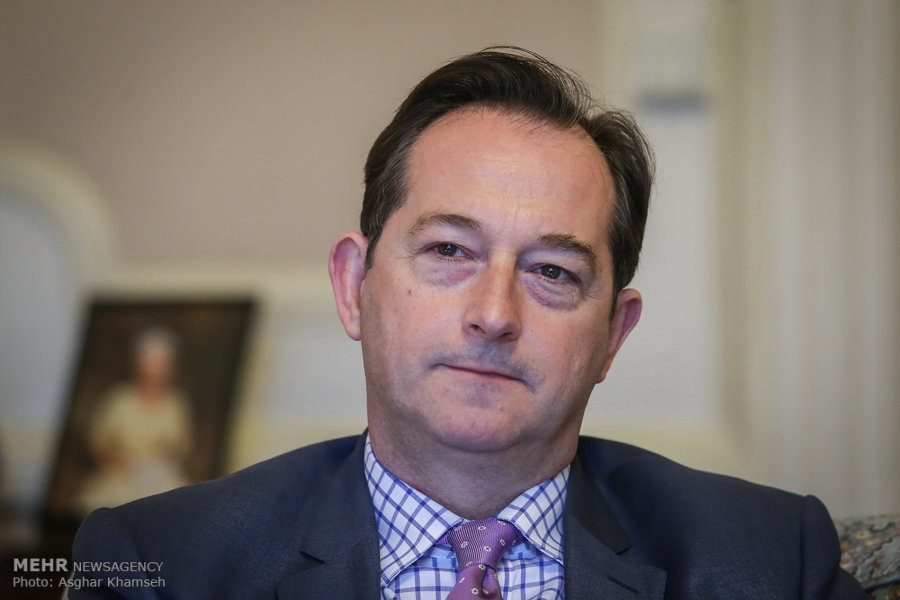
*How do evaluate the level of economic cooperation between Iran and the UK in post-JCPOA?
I think the relationship between Iran and the United Kingdom has progressed positively over the last two and half year since we reopened the embassy here. I think part of that has been gradual opening and increase of trade between the two countries. Clearly business contact is an important part of making the JCPOA work for Iranian people. I am pleased to say that not only the whole European trade with Iran has increased very significantly but British trade with Iran in both directions has increased. I think that is good for both countries. The last statistics that I have seen say that trade between summers of 2016 and 2017 went up by almost 60 percent. It is a big increase and its means my embassy’s trade team have worked very hard and I know your embassy in London is working very hard on that. It is a part of a wider picture of growing cooperation despite all challenges. I am keen to see even more business between the two countries.
*Comparing with your rival European countries like France and Germany, I think the volume of cooperation between Iran and the UK is not satisfactory yet. What are the main obstacles?
You are right that British trade with Iran is lower in volume than our French, German or Italian partners. This is for several reasons. One of the reasons is that they were starting different levels in 2016 after the sanctions were lifted. We started from lower level than our European partners because of the break in diplomatic relation between Iran and the UK. I think the growth rate of the British trade has been greater. And also when it comes to business with Iran, there is a lot of uncertainty. That is something that UK would like to see greater certainty because our government fully supports British companies dealing with Iran. We would like to see British and European banks opening up much more to doing business with Iran. But I am pleased to say that despite that uncertainty there is steady growth in business and contact between Iranian and British banks and companies and we still are making progress.
*Due to President Trump’s approach toward the JCPOA, possibly we will witness some new problems between Iran and the US in future. Considering this fact how do you see the prospect of the economic cooperation between Iran and the EU especially with the UK? Will these possible problems affect the economic cooperation?
The UK is fully committed to making the JCPOA a success. That has not changed. We believe the JCPOA is a critical deal for the security of the region. It is a very positive security guarantee for the region because it constrains the possibilities of Iran acquiring a nuclear weapon which was a concern before. At the same time we recognize that it is important to find a way to bring back the Islamic republic of Iran to the global family and international economy. The JCPOA offers that through the sanctions lift which happened in January 2016 which allowed trade much more freely. As I described there are still some constrains and uncertainty and issues we have to deal with. But this increased economic integration with the world and trade with EU and other partners will be positive thing for Iranian people. Some people say that there have been no benefits to Iran from the JCPOA so far, I disagree. I have been here for over two years, I have seen the arrival of companies from outside of Iran and signs that economic opportunities are improving simple things like shops opening or British companies like Lotus operating here and sell cars. It was not possible before, I hope that other British companies will engage with Iran. I know that such JLR, Debenhams, Morphy Richards, GSK, Hackett, Super Dry are engaging or looking at the market.
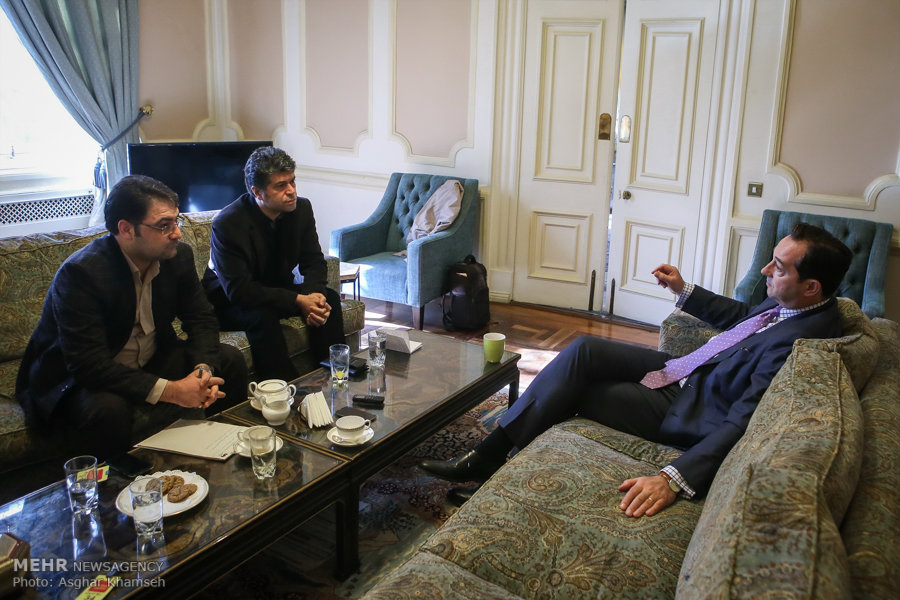
*How do you assess the US president’s approach to the JCPOA? Isn’t his behavior a kind of breaching the deal or at least not being committed enough to it?
I should mention that President Trump signed the sanctions wavers recently. That was a positive thing and the US still a part to the JCPOA. I cannot speak for the US but I can speak for the UK. The British government is fully committed to working with all our partners including Iran to make the JCPOA work and ensure that all sides respect their commitments under the JCPOA.
*Despite all EU assurance issued by the EU officials that they are fully committed to the JCPOA including the UK, couple of days ago the US foreign minister Rex Tillerson after meeting with his British counterpart Boris Johnson said there is a good consensus between the UK, Germany and France on the necessity of changes to the JCPOA and some other issues like Iran missile program which will make US not to withdraw from the JCPOA. What guarantees have the EU offered the US? It seems the EU has taken a dual approach toward Iran. What do you think of this?
The British government recognizes that the JCPOA is an agreement that was finished in July 2015 under international law and UK respects international law. At the same time we have very clear position asserted by me and my foreign minister and prime minister that there are areas that we don’t agree. I am glad to say that we are using diplomacy in the areas we don’t agree. We have some particular concerns about some of the activities of Iran in the region and we also consider Iran’s ballistic missile program is inconsistent with the UNSC resolution 2231. These are areas that we feel it is important to engage with Iran to see how progress can be made so that the differences diminish and the greater security and stability come to the region.
*As far as I understand, you mean another agreement needed to be reached on other area beside the JCPOA. Right?
What I said was that these are the areas of concerns to the government of the UK. We think that the missile tests conducted by Iran are inconsistent with the UNSC R 2231. At the same we recognize that every country has right to self-defense and Iran has right to self-defense, too.
*Considering the fact that the US doesn’t comply with its commitments under the JCPOA and every day threatens to leave it. Let’s imagine that Iran possibly will agree to a new agreement on its missile program despite all its security concerns. Who is going to guarantee that the western countries particularly the US will remain committed to its obligations under the possible new agreement?
As I said we are not talking about a new agreement. We are fully committed to the JCPOA. We think the issue of the JCPOA is self-standing and separate from other questions like Houthi’s missiles in Yemen which is being examined by the UN now. We think there is only a political solution for Yemen. These things are separate from the JCPOA but they cannot be ignored. We are talking to our Iranian partners and we will continue to express our concerns on missiles, Yemen or Syria.
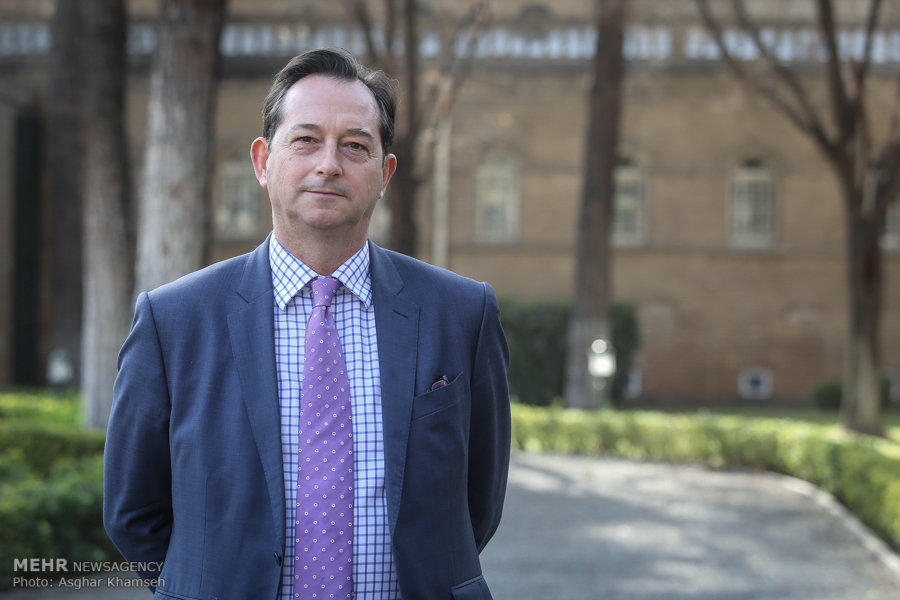
*It is proved for our security and intelligence forces and Judiciary system that Mrs. Nazanin Zaghari-Ratcliffe has been working as a spy for the British government in Iran and the issue was raised by British FM during his visit to Tehran. Your government’s insistence on release of Mrs Zaghari which overshadows the relation of the countries reminds us the dark history of the British government’s interferences in Iran’s internal affairs over the history despite you promised beginning of a new area in the relation of the two countries in the beginning of your mission to Tehran as the UK ambassador two years ago. I would like to know how the British government would behave if such a case happened in the UK?
I think the foreign ministers of the UK and Iran have done a great job in driving forward the relation between our two countries. We reopened the embassy in 2015 and we restored full diplomatic relations in September 2016. We reopened our visa service. We have made lots of progress in different areas and we have tackled some of the long standing issues which have prevented the relationship developing. I am very positive about the relationship between Iran and UK. It is heading in the right direction and we have been working together but it has sometimes been complicated. We have been knowing each other for hundreds of years. There has been ups and downs.
About the next point, we clearly refute the suggesting that the Britain is interfering in internal affairs of Iran. We are not interfering in the domestic affairs of your country.
Britain respects Islamic Republic of Iran in the same way we respect all sovereign countries. On the case of Mrs. Nazanin Zaghari-Ratcliffe, the British government has consistently appealed to the Islamic Republic of Iran authorities to treat her with clemency on humanitarian grounds. She was visiting Iran with her daughter on holidays to visit parents at Nowruz 2016 when she was detained. My foreign secretary and I have said very clearly that we have full respect for the Iranian judicial system but we would like to see her released on humanitarian grounds to reunite with her family. She has health problem and she has been separated from her 3 years old daughter.
*As an Iranian journalist I feel that when it comes to the issue of the human rights you have double standards for example about the ongoing violation of the human rights in Bahrain and Yemen British government keeps silent but in case of Mrs. Zaghari your government is very active. Every day we see reports on selling arms to the Saudi Arabia by British government despite knowing these weapons are used by Saudi to massacre Yemeni children and women. All these makes me to come to this conclusion that you have double standards on the issue of human rights.
Well, of course you fully entitled your opinion. I am afraid that I don’t agree. British government is fully supportive of international law and norms and the agreements to which we are party. We are very attached to the Declaration of Human Rights. We expect our partners to support it including the Islamic Republic of Iran. Yemen is an issue that my government is focused on trying to resolve. What is happening in Yemen is a tragedy and people of Yemen are victims. People are suffering from cholera and it is a disaster. UK is working very hard. We are talking to all parties including the coalition. We do have a very close relationship the GCC countries and we work closely with them on a range of issues including security which they have full right. We believe the Yemeni people have the right to security. We would like to see progress now toward the political situation in particular we feel that it is important for Houthis not to take provocative actions such as firing missiles at civilian targets in Saudi Arabia. As you suggested the UK sells military equipment to Saudi Arabia. We have security agreement with GCC countries. It is true we sell them with military equipment because we have defense relationship but at the same time we are very careful in scrutinizing how whatever materials we sell around the world are used. We take every step to make sure they are used in legitimate way. It is very important for British people and our government acts in accordance with the law.
*Before my next question I should say the GCC is recognized as PGCC (Persian Gulf Cooperation Council) by Iran. Has your country as a permanent member of the UNSC which is responsible for the world peace and security taken any serious steps to stop the ongoing tragedy in Yemen and condemn the Saudi Arabia and United Arab Emirates’ crimes against civilians in Yemen?
Within the UNSC, UK has responsibility for Yemen and other countries. I myself as then UK ambassador to Yemen was very involved in Yemen after 2011 when Ali Abdullah Saleh left power. My country and I were very engaged in stabilizing the situation and then pursuing political process under the UN umbrella. And also supporting humanitarian relief through the group called the Friends of Yemen. Since then the UK has been a voice for calling peace not conflict. We talk to the all countries involved including Iran. There is no military solution for Yemen. No foreign power has ever been able to rule Yemen through military means. The solution lies in diplomacy, political dialogue, engagement and humanitarian support under UN umbrella.

*Peaceful settlement is exactly Iran wants for Yemen. We know that the general regional policy of the Britain is to keep balance of power between different political factions and powers and religious groups in the region so that to gain its own favored regional balance. Considering this general policy we think the UK is committed to human rights and humanitarian values as far as these values meet the UK regional policy. So we believe the UK has not taken the crisis in Yemen serious to settle it in peaceful way so far.
Mr. ambassador, you said your government respects Iran and never interferes in Iran’s domestic affairs, but some British medias affiliate to your government like BBC Persian’s have hostile approach toward Iran not friendly than can be considered as interfere in Iran’s domestic affairs like its approach toward the unrests in some of Iran’s cities couple of weeks ago.
I am afraid to say that your question reflects deep misunderstanding of the relationship between BBC and the British government. They are not affiliated. The editorial policy of the BBC is totally independent and the funding’s for BBC largely comes from taxes paid by normal people who buy television licenses. It is an independent body with its own editorial policy and journalists. As long as the respect the laws and don’t cross the norms that is acceptable. Your question is based on misunderstanding which I heard before in Iran. I am very grateful for giving me this opportunity to clarify that the BBC is independent and the media in the UK are independent. We are very attached to the freedom of speech and the press.
*The relation between Iran and UK have had lots of ups and downs over the history. There are two different attitude towards this relation both in the UK and Iran one is very negative and the other is positive. We know very well that since the establishment of Britain hundred years ago, the UK has always been keen on keeping and preserving its global hegemony and influence and still is after influencing the global affairs and its foreign policy is based on this fact. Why the British politicians all over the history have not accepted and still don’t want to accept that the Iranian nation particularly after the Islamic revolution of 1979 based on their historical, religious, civilization and cultural assets want to have their own role in international community without any obstacles? Would you please frankly answer why the British politicians have always created obstacle in the way of the Iranian’s will and progress? We in Islamic school of thought believe that politics and lie are contrary to each other but in Western school of thought politics and lie are two complementary wings to gain power. Based on our values we have always told that we are not after nuclear power and you (the west) based on your school of thought always accuse us of trying to achieve nuclear weapons. Why you judge us based on your own values and teachings?
First of all, I would like to say that the UK judges its partners and other countries on their actions. We are very pragmatic. As I know Iranian people are also pragmatic. What countries do is important not what they say. As you rightly mentioned the relationship of Iran and the UK has had lots of ups and downs in the past but what I focus on is the future. I am glad to say now we are discussing the future with our Iranian partners. We have an opportunity for Iran to return to the international community in a way it hasn’t been for a long time to play a constructive peaceful role. We want to see some of the Iran’s behaviors change. UK believe Iran has a rightful place as an important country in the region. We respect that. You have a population over 80 million and you have the second biggest economy in the region and have a lot of potential. The UK will continue to encourage Iran to create a better and peaceful region.
Interview by Payman Yazdani & Mohammad Ghaderi


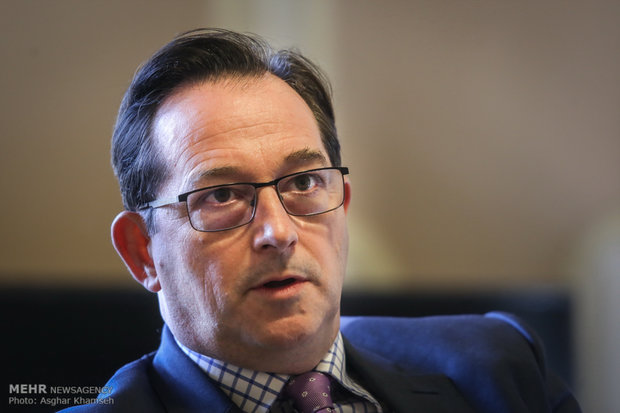

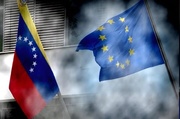
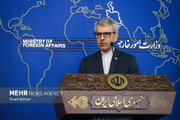

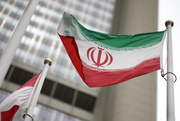





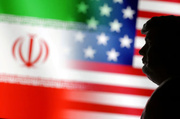

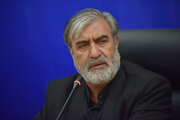
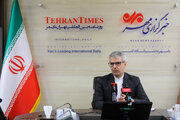


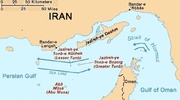


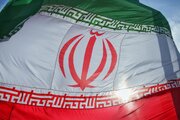

Your Comment